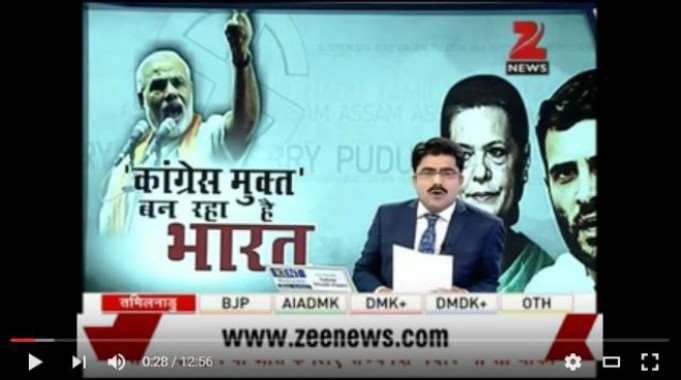The Maggi school of election coverage
Elections and budgets are two occasions when the media appear to be in the greatest hurry to present news and analysis. This is certainly true of TV and radio and to some extent this is also true of the print media. In the context of competition, this haste makes sense but if it happens at the cost of balance and perspective – particularly over such important subjects as elections and budgets - then questions have to be raised about to what extent the ‘me first’ syndrome can be allowed to dominate the scene.
If the haste is accompanied by prejudice and bias, the outcome may be coverage that notices only what it wants to notice while ignoring the wider reality.
The presentation of the results of the recent elections in five states in which the Congress was predicted as heading for a rout and the BJP for an emphatic victory is an example of this phenomenon. This early conclusion would have influenced public opinion.
However it soon became evident that while the BJP had certainly scored a major victory in Assam and the Congress had much to worry about, the overall result of the five assembly elections could not be seen through a simplistic ‘victory vs defeat’ lens. In particular, it was important to note that in all five states, the number of seats won by the Congress (115) was much higher than the BJP’s 64.
Similarly, while the BJP has been able to form a government in Assam, it has not been able to occupy the second or even third position in any of the other four states. On the other hand, the Congress, apart from forming a government in Puducherry, has been able to get the second position in three states and getting the role of being the major opposition party is obviously important in a parliamentary democracy.
While it is clear that a lot of media coverage has downgraded the Congress while exaggerating the electoral achievements of the BJP, it is also equally clear that the electoral performance of the left parties has been badly devalued. Yes, the Left Front has suffered a major setback in West Bengal but the media have failed to highlight one fact: that in all five states taken together, the CPI(M) has won more seats than the BJP. Surely, if not highlighted, it’s worth at least a mention? Such distortions are caused by the mix of competitive journalism and bias.
Election results of the legislative assemblies to the five states/ UTs
| State/ UT | BJP | INC | CPI (M) |
| Assam | 60 | 26 | 0 |
| Kerala | 1 | 22 | 58 |
| Tamil Nadu | 0 | 8 | 0 |
| W. Bengal | 3 | 44 | 26 |
| Puducherry | 0 | 15 | 0 |
A similar effect can be seen in the presentation of the Union Budget which has become quite a tamasha, particularly on TV. As the budget speeches in recent years have often tried to conceal as much as reveal, and as the immediate analysis is generally based only on what the Finance Minister says in the speech, it is quite a difficult task to give a balanced opinion after listening only to the speech, without consulting a lot of other supporting information and data.
Yet it is this instant and limited output that tends to be the most effective in terms of forming public opinion. Also, having once expressed their opinion on TV or on other media on the basis of inadequate information, several experts are reluctant to revise their opinion publicly, even if they later find facts contradicting their earlier judgement.
On one rare occasion I found a senior expert saying at a seminar on the budget, ”When I was first asked to give my views on TV immediately after listening to the budget speech I commented that this is a pro-farmer budget but later when I looked carefully at all the details I had to change my opinion.”
Such honesty is rare and more often the first-time views linger, despite new and different facts being revealed. Here, the urgency of TV news actually encourages bias because, when they are forced to deliver judgements swiftly, experts are likely to take note of only what they choose to. Hence the game of drawing very different conclusions from the same facts goes on endlessly on our TV screens.
A more balanced, less hurried, and less prejudiced media coverage of such important issues as election results and government budgets would be welcome.
Bharat Dogra is a veteran journalist.







